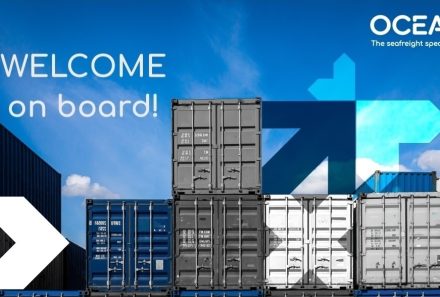
On Robotic Process Automation (RPA)
by Ruben HUBER
Robotic Process Automation (RPA) is on everyone’s mind these days. We had a long discussion on it this month, during our Executive Development Program with a cohort of our member’s talents at OceanX, further I had the pleasure to be part of an exciting panel discussion at #TPM21 with Angela Czajkowski, Alan Holland and moderated by Eric Johnson, on the subject. Finally we also pondered a lot on RPA and its progress, when working with an exciting group of industry friends on the upcoming book Digital Transformation in Logistics, curated by Mac Sullivan and Dr. Johannes Kern. .
RPA certainly has different dimensions, that do have different drivers. For a better understanding of those, I would tend to segment them into operations automation, administration automation, buying, selling and pricing automation, as well as communication automation.
Operations automation refers mainly to the automation of physical processes, for example in warehouses, ranging from automated vehicles, automated storage systems to automated dimensioning. Some technologies in the field are very much advanced since many years. Drivers for the developments and implementations are certainly efficiency objectives and an increasing lack of resources where it comes to manual labour. Amazon and CaiNiao have no doubt been key players in advancing this field over the past decade.
Administration automation focuses on documentation and billing processes, matching data, transferring information, controlling and ensuring compliance. Many elements concern highly standardised tasks and processes, some of which have previously been centralised or faced offshoring to lower cost regions.
Buying, Selling and Pricing automation, focuses on automation in an increasingly dynamic environment. Digital marketplaces, online sales and spot quotations, automated tender systems, continuously speed up the offering processes. For example it is hardly possible for a human to monitor the positioning of the own tariffs competitiveness on a digital marketplace, comparing to other providers and adjust the offering constantly. On the other hand, it is highly unlikely to obtain an order, when one’s offering is not reflected on the first page of an enquiry. Thus it is only natural to automate such benchmarking and adjustment processes when it is possible. In buying, automation is an even more exciting subject, in particular, as it can help companies to reduce the human element in the process, that can biased or corrupted. And thus by pushing buying automation, customers are becoming the drivers for increased sales automation, which spreads over the pricing process and own rate management as well as buying processes of service providers. This area is not only a field for efficiency, but in the transition period to a more automated world, can help to differentiate and create at least a temporary competitive advantage.
Communication automation, lastly is an efficiency driven and cost conscious subject. Much white collar workload in the transport industry remains related to receiving and understanding information, updating status, based on which action follows, that sometimes might just be forwarding of said information. Automating the processing and communicating of information, thus more of the Data/Analysis/Decision/Action cycle, can deliver vital efficiency gains. And with resulting cost savings and speed gains, help differentiation in the marketplace.
With our class in #EDPx having many students from within the day to day business of forwarding, it has also shown that a lot of the brave new world which RPA enables, has not yet arrived in everyones daily reality of work. Thus as usual, things might take longer than they could as in terms of technology, us humans and our ability to understand and implement change, are increasingly becoming the limiting factor, rather than technology itself.
Further, one might argue that response bots are be a nice thought if you have a large customer service team and you can automate answers to easy questions, thus eliminate part of customer enquiries from your service team. However the focus likely should not be on customer interactions at the first stage, but rather on every step the client does not see.
Man vs. Machine
Any discussion on RPA to some degree raises the man against machine debate, a subject that is truly intriguing. However the strengths of man and machine are so different, that it truly does not need to be an either/or argumentation but much more a question of how to combine the different abilities for a better result, TOGETHER.
Kasparov puts it nicely in his book, Deep Thinking, it is not a race where we pit man against machine or machine against man, its more about how we can combine the two in collaboration.
Richard Sprenger, in Radikal Digital puts the advantages of humans very clearly, in the fields of customer, collaboration and creativity.
The customer, trust, confidence and relationships are still essential. Especially in a business to business world, like shipping and logistics. Dynamic pricing meets dynamic buying, automated feedback and benchmarking, leading to a very efficient price finding process, but then you have 3 providers with similar service level and similar price, how is the decision made? The buyer is still putting his job on the line, thus trust & confidence based on brand, past experience and relationships, plus several other factors, will make that call.
Collaboration, in a world of specialisation, where increasingly the best solution counts, is a key differentiator. How to combine the best tools and services to solve customers needs? No one needs to own the chain to provide end to end solutions, flexible networks of different service providers, that interact and connect agile, combining advantages to differentiating services will be the future. That needs people to come together. This also includes the customer as an integral part.
Creativity in finding solutions will no doubt remain a success factor. Exceptions are a key part of our business as things do go wrong and creativity remains a key human advantage in exception management.
Some put it even more simple, Humans have empathy – Not only the pandemic shows us, how much difference that makes and how vital it is for human life and interaction.
We have been here before (and we will be here again…)
If we go back in history, many of the discussions that we have today around automation, we had long time ago with Icarus and Daedalus arguing about humans flying or the steel driving man John Henry fighting the advance of the machines during the industrial revolution.
Similar to hard toil and labour back in the railroad building days, working thousands of lines in an excel sheet completing a tender manually is a waste of human talent and ability. And we rather embrace the brave new world and put the technology to use, than to fight it.
Exciting times ahead! Do not be afraid of the robots, humans will continue to make the difference.
About OceanX
OceanX is a non – exclusive global network of leading ocean freight providers and NVOCCs dedicated to delivering bespoke innovative solutions, in particular on FCL services, LCL consolidation, dangerous goods and chemical logistics, temperature control, fashion logistics, as well as project cargo handling.
Under its Executive Development Program, OceanX partners with external institutions and experts but also with member firms, to offer courses on a variety of relevant subjects, for the talent development within our member’s organisations and beyond.


